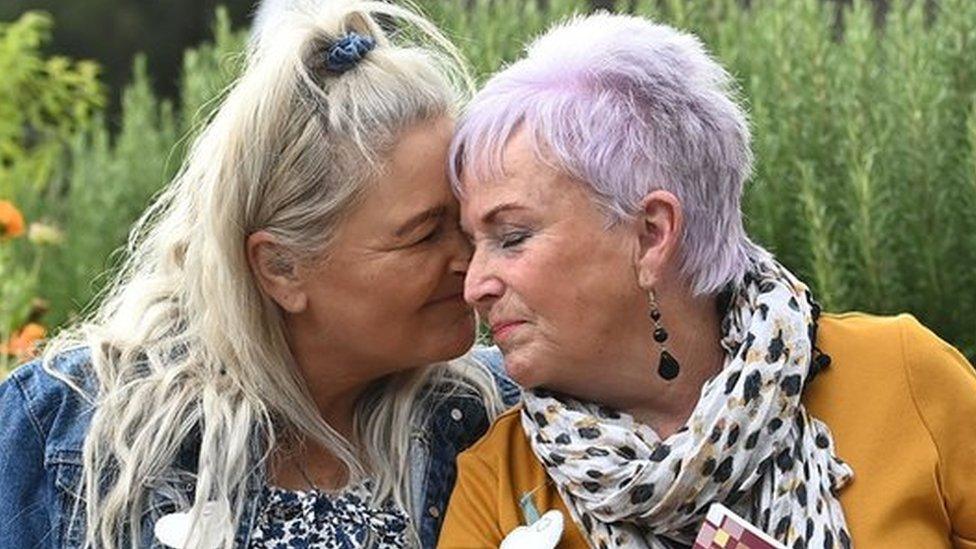Proposed £10k redress for mother-and-baby home victims
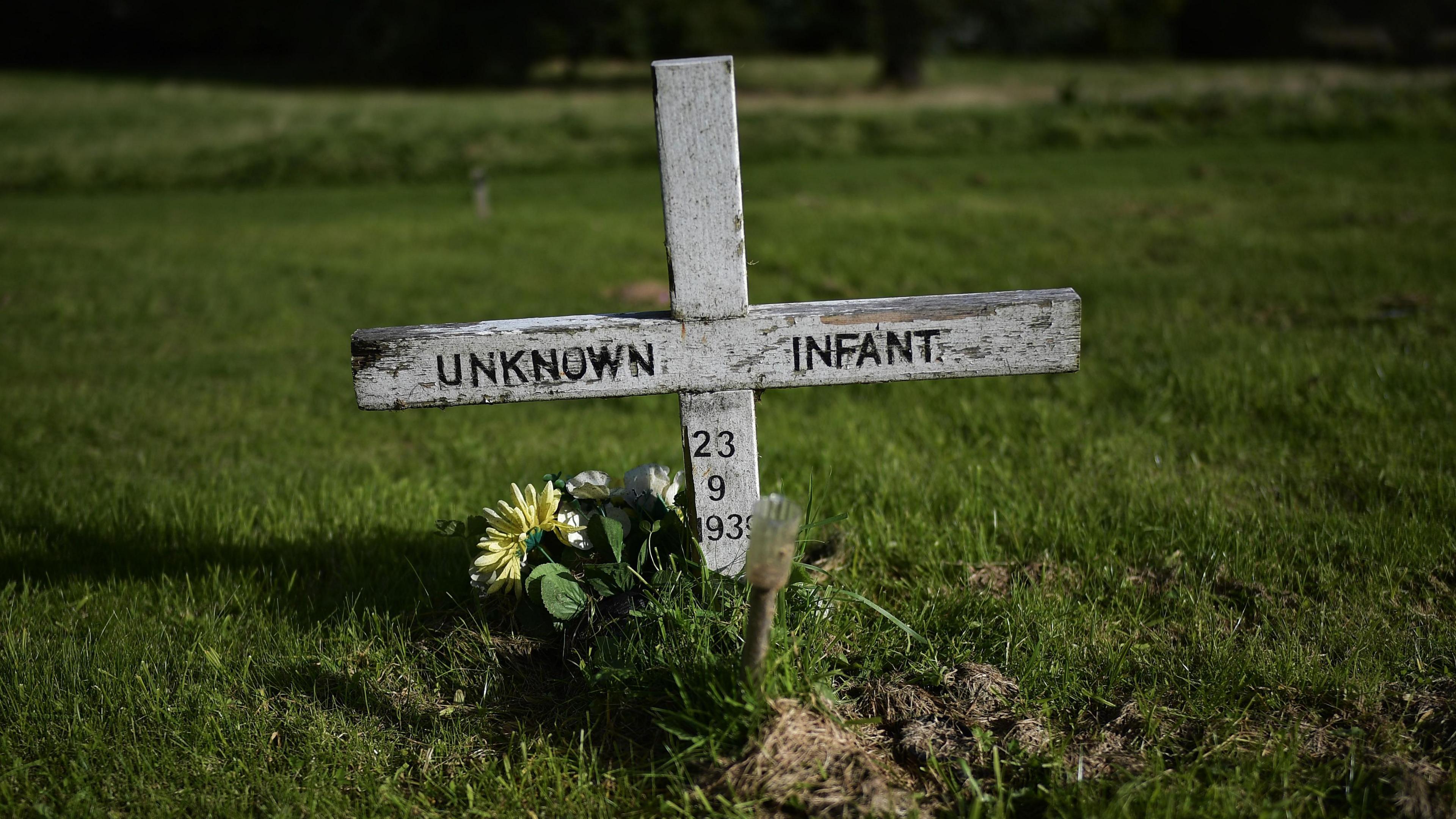
A 12-week consultation into proposals for a mother-and-baby home public inquiry was launched on Thursday
- Published
A £10,000 redress payment for victims and survivors of mother-and-baby homes has been proposed by the Executive Office.
It comes after a 12-week consultation on proposals to establish a public inquiry into mother-and-baby homes, as well as an associated redress scheme, launched on Thursday.
First Minister Michelle O'Neill announced the consultation earlier this week in a statement to the assembly on behalf of her and Deputy First Minister Emma Little-Pengelly.
Within the announced proposals, external, an early standardised payment of £10,000 will be given to eligible individuals.
These include women who were admitted for more than 24 hours in a named institution, or people who were born while their mother was there.
Further individually assessed payments will also be made following the inquiry's work.
A report by university academics in January 2021 found at least 10,500 women and teenage girls were passed through those institutions in Northern Ireland, external between 1922 and 1990.
Victims 'have waited too long'
Ms O'Neill said victims and survivors of mother-and-baby homes "have waited far too long to have access to the truth, redress and accountability for the suffering they endured".
She added she was keen to progress the consultations as quickly as possible, and try "to be as sensitive as possible to victims and survivors' concerns".
"I hope that this initial payment for those who are eligible will bring some reassurance that we are committed to driving this forward.
"It is important now for us to see, listen and hear from those affected in order to inform the decisions we take with our Executive colleagues."
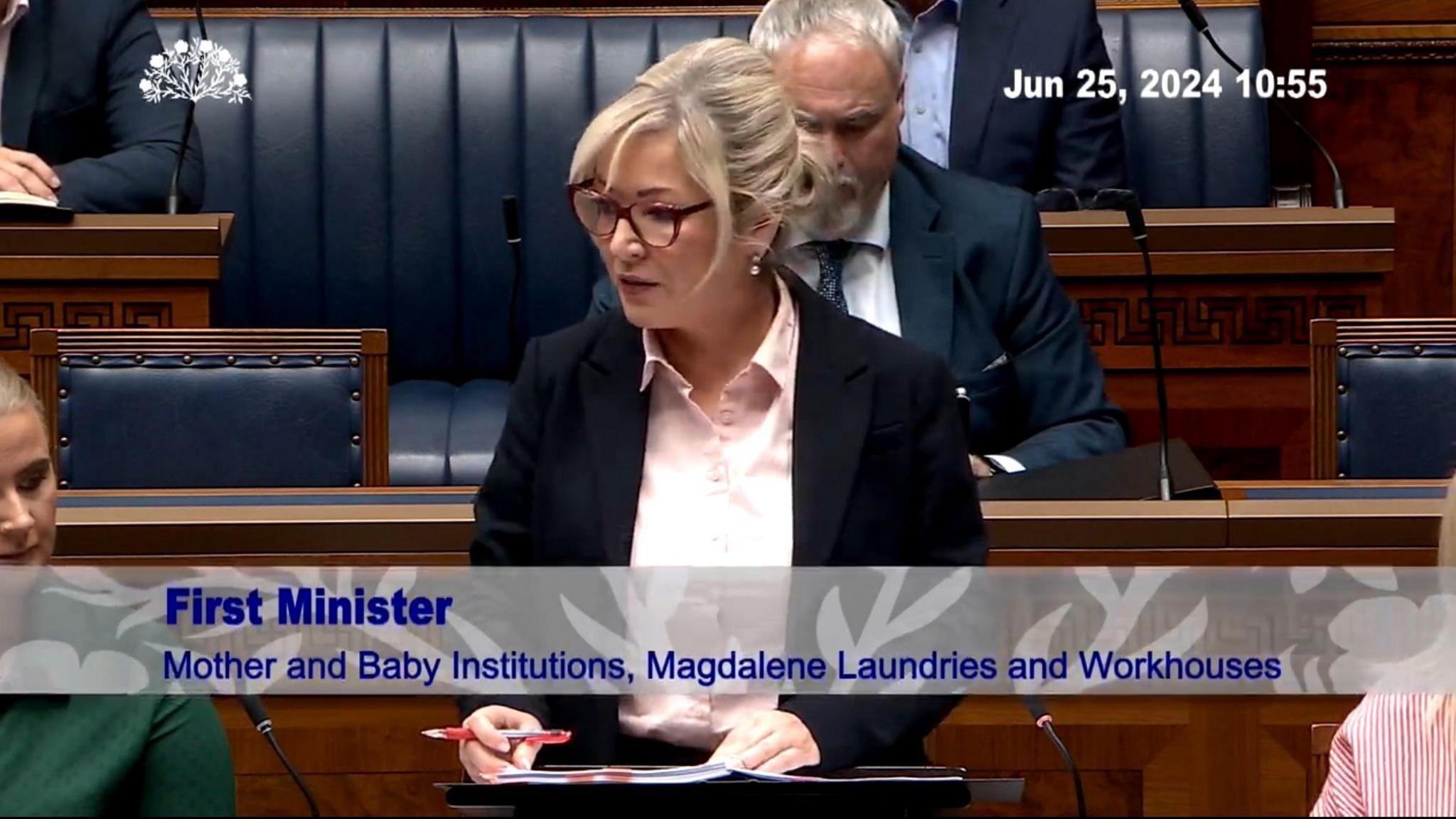
The first minister announced the consultation in the Stormont assembly on Tuesday
Ms Little-Pengelly said that the public consultation will help "shape the legislation necessary to set up the inquiry" in order to get answers for victims and survivors.
"We are also very aware that victims and survivors who have been through so much have waited for too many years for access to financial redress. That is why we have included an initial £10,000 standardised payment for those eligible within this proposal," she added.
Addressing the individually assessed payment, the deputy first minister said this would be available after the inquiry's work was done and that it would take into account "individual experiences to reflect severity, duration and impact".
'Wrong and outrageous' - solicitor
Solicitor Claire McKeegan represents the majority of survivors of institutional historical abuse in Northern Ireland.
Speaking to BBC Good Morning Ulster, Ms McKeegan said this proposal is a "hugely significant milestone - it's the first government commitments into these cruel institutions."
Ms McKeegan said the proposal must move quickly and has to be "looked at in the context of what these women and babies suffered".
"The survivors should be paid as a matter of extreme urgency," she added.
Women have been campaigning years and some of those campaigners have since passed away.
"Survivors have been campaigning for eleven years, this has been painful and traumatic - there would be a cut off line for anyone that died in 2021.
"That takes a huge number of that 10,000 you refer to who would be eligible. It seems much less generous when you look at it with that eye."
She added that women felt ashamed but still went public and deserve an apology.
"This is not something they (survivors and victims) have wanted to do but they have felt desperate to find the truth - this is so wrong and outrageous
"An apology should be up there with one of the first things to put out there - that this never should have happened - this needs to happen."
In a statement, The Executive Office said that there had been "no decisions on posthumous claims".
“The public consultation on proposals for Public Inquiry and Redress Scheme asks for views on this sensitive matter with important acknowledgement, equity and privacy considerations.
"The Executive Office will listen carefully to views, especially from victims and survivors and their relatives to inform decisions.”
What were the mother-and-baby homes?
There was once a network of institutions across the island of Ireland which housed unmarried women and their babies at a time when pregnancy outside marriage was viewed as scandalous.
There were more than a dozen such mother-and-baby homes in Northern Ireland.
Three of them had Catholic-run workhouses known as Magdalene Laundries, where women frequently had to do exhausting, unpaid labour.
Researchers found that a third of those admitted were under the age of 19, with the youngest child to be admitted aged 12.
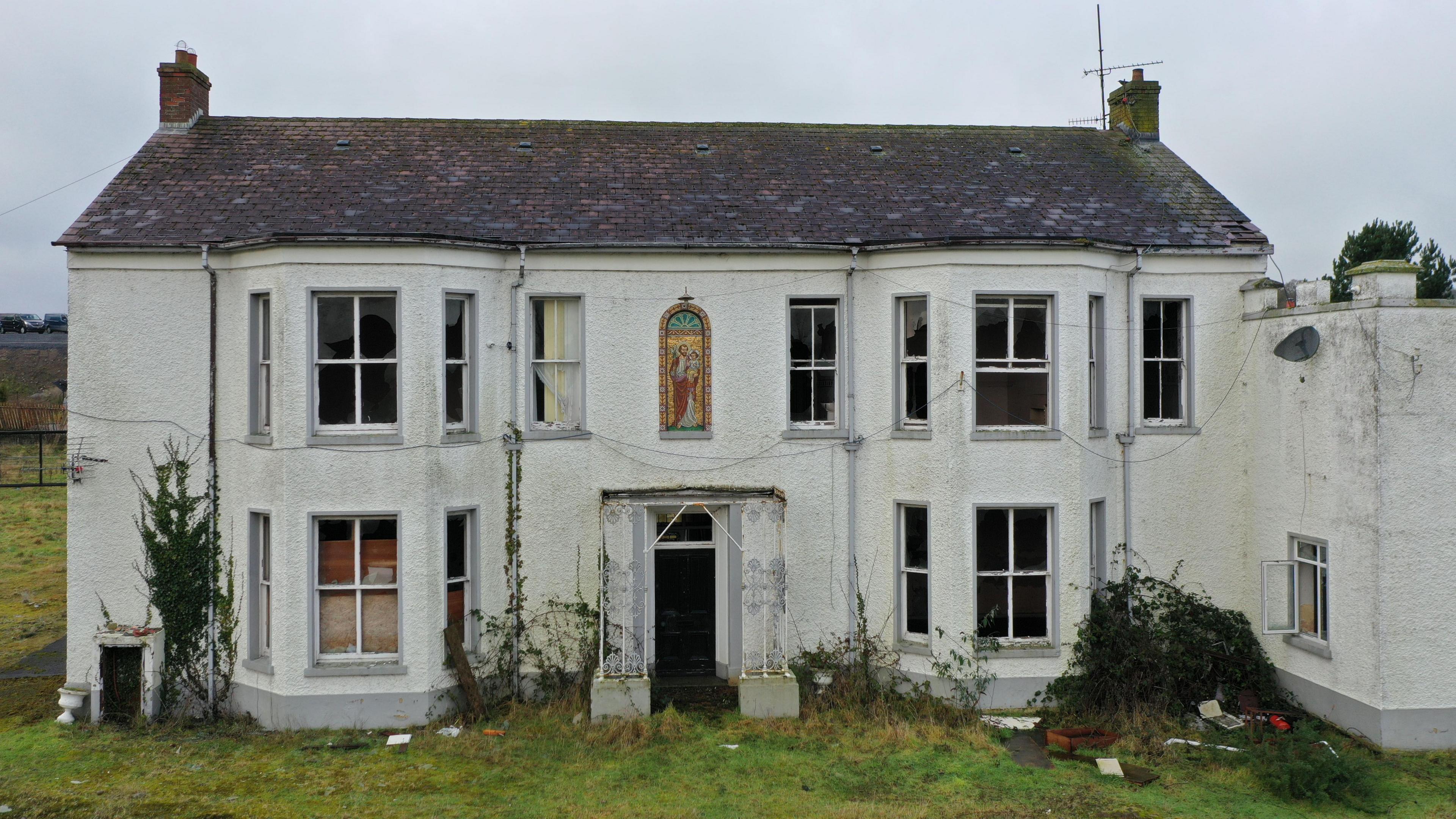
There were more than a dozen such homes in Northern Ireland, including Marianvale in Newry
A number were the victims of sexual crime, including rape and incest, and “strenuous physical labour” was expected of residents late into their pregnancies.
Many women and girls were separated from their children by placing them in children's homes, boarding them out (fostering) or through adoption.
There was also the issue of the cross-border movement of women and children in and out of the institutions.
The last institution in Northern Ireland closed in 1990.
Related topics
- Published25 June 2024
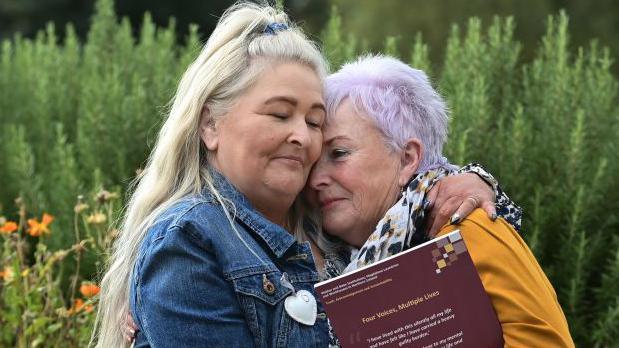
- Published7 October 2023
